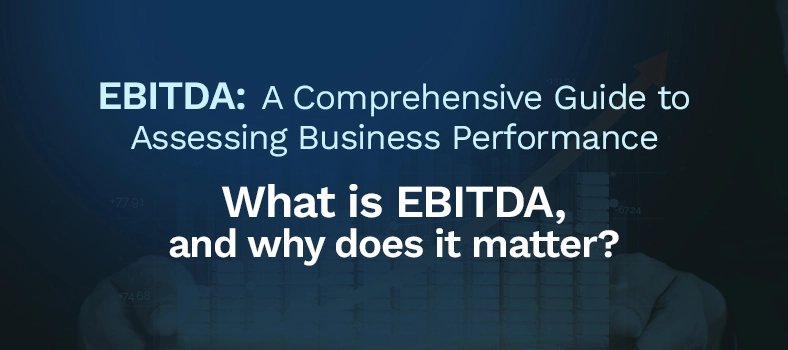How to Evaluate Business Performance: A Complete Guide
May 01, 2025

What is EBITDA, and why does it matter?
EBITDA is not just a combination of letters; at its core, EBITDA is a measure designed to reflect a company’s ability to generate profits from its core operations, excluding the impact of external financial factors.
EBITDA refers to Earnings Before Interest, Taxes, Depreciation, and Amortization.
EBITDA = Revenue – Operating Expenses
Revenue:
The starting point of the EBITDA calculation is a company’s total revenue. This includes all income generated through its primary business activities.
Operating Expenses:
Operating expenses encompass the costs directly tied to a company’s day-to-day operations. These may include salaries, utilities, rent, and other expenses directly linked to the production and delivery of goods or services.
Why is it important?
EBITDA reflects how efficiently a company operates and how much of its earnings are attributed to operations. Investors often use EBITDA as a quick metric to assess a company’s financial health. It allows them to focus on the company’s ability to generate profits before accounting for financing and tax decisions.
What Is a Good EBITDA?
EBITDA margin = EBITDA / Total Revenue
Determining a good EBITDA margin is dynamic and always varies based on industry and business strategies. A smaller company with a higher margin might be considered as efficient, whereas a larger company with a smaller margin may be prioritizing higher sales volume, aligning with its specific goals.
In a nutshell, long story short!!
EBITDA remains a valuable tool for assessing a company’s operational efficiency and profitability. As with any financial metric, it should be used along with other indicators to gain a comprehensive understanding of a business’s financial health.
Q
Tell us how can we assist you?
We are always happy to answer any questions!
- General Enquiry: +91 93429 02804
- Sales Enquiry: +91 93429 02803
- Landline: +91 422 435 4854
- Whatsapp: +91 93429 02803
